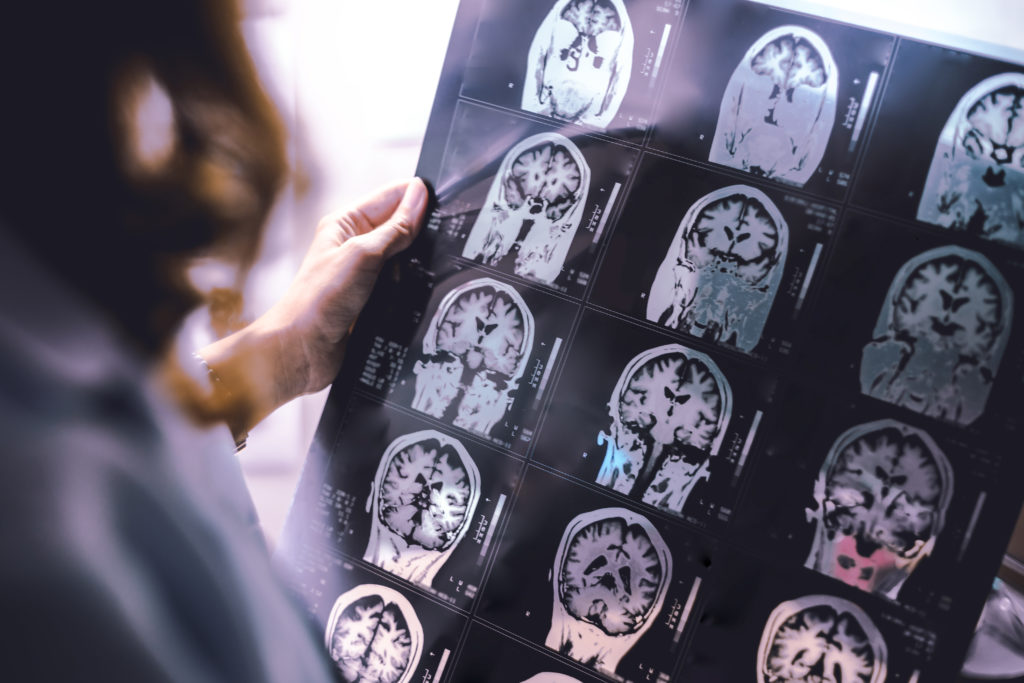Quick Hits
Daily brief research updates from the cognitive sciences

Brain scanning of political partisans is not new and it has long been reported that brain scans can predict political affiliation. But those studies were scans of political partisans in situation that elicited emotional responses such as looking at pictures of political candidates or asking questions on policy issues.
The question these researchers wanted to answer is can you predict a person’s political affiliation just by looking at their brains while they were doing random tasks or even nothing at all!
What did these researchers at Ohio State University do?
The researchers recruited 174 participants to take part in the study and questioned them on their political affiliation and the intensity of this. They then underwent various brain scans while doing various standard testing activities. These activities were unrelated to politics. These included reward response tasks, clicking quickly on screen to receive a reward, empathy tasks, short-term memory task, episodic memory, matching names to faces, and more.
Interestingly they also did resting state scans, scanning the brain while doing nothing.
By measuring functional connectivity i.e. how brain regions connect they were then able to match correlations to political ideologies.
What did they find?
And yes, they found that using this functional connectivity they could predict political affiliation as effectively as with the best other predictor. What is the best other predictor you may ask? It is the political affiliation of your parents.
What is more interesting is that this correlation was just as effective by looking at resting state brain activity – so by looking at your brain at rest they could predict political affiliation.
It is not a perfect correlation but nevertheless intriguing and fascinating at the same time.
An additional note is that the reward task was most predictive of political extremism, showing a surprisingly high corelation, which shows that politics seem to resolve around emotionality. Just what this could mean is another question for further research.
So, is there a conservative brain and liberal brain (in the USA that is)? It certainly seems so●

Andy Habermacher
Andy is author of leading brains Review, Neuroleadership, and multiple other books. He has been intensively involved in writing and research into neuroleadership and is considered one of Europe’s leading experts. He is also a well-known public speaker speaking on the brain and human behaviour.
Andy is also a masters athlete (middle distance running) and competes regularly at international competitions (and holds a few national records in his age category).
Reference
Seo-Eun Yang, James D Wilson, Zhong-Lin Lu, Skyler Cranmer.
Functional Connectivity Signatures of Political Ideology.
PNAS Nexus, 2022;
DOI: 10.1093/pnasnexus/pgac066
More Quick Hits
Learning at double-speed?
Quick HitsDaily brief research updates from the cognitive sciences ouldn’t it be great if we could learn things double speed? Well, maybe we can. At least according to a study out of the University of California. During the pandemic many...
The “drunken monkey” hypothesis – proven
This had to be a story I covered – monkeys and alcohol sounds too good to pass up. But this is also linked to the “drunken monkey” hypothesis: that humans developed their love for alcohol in earlier primitive times accidentally, and then intentionally, eating fruit...
The Newly Discovered Bias That Makes Us Think We Are More Diverse Than We Are
A few weeks ago I reported on some newly discovered ways we are biased namely that we consider generic terms such as “people” as equivalent to “men” rather than men and women. This was specifically focused on gender bias but this latest piece recently published shows...
Self-awareness of autism leads to better quality of life
Autism has become a well-known diagnosis in recent years. Though some people seem to be against this sort of labelling, and the general increase in different label of mental conditions, a study out of the University of Portsmouth shows why this is actually a good...
Optimal sleep improves your brain, mental, and physical health - and it’s not as much as you think
I’ve reported multiple times on sleep and how it affects just about everything form cognitive performance, to brain plasticity, to physical performance, to mental health, and to metabolism. The question...
No change for a century – children’s backgrounds still predict the same educational outcomes
Educational opportunities have changed dramatically for children over the last century – schools have changed, and college and university admissions have grown. Or so we might think at least. But according to a study out of the University of York, that is not the...






